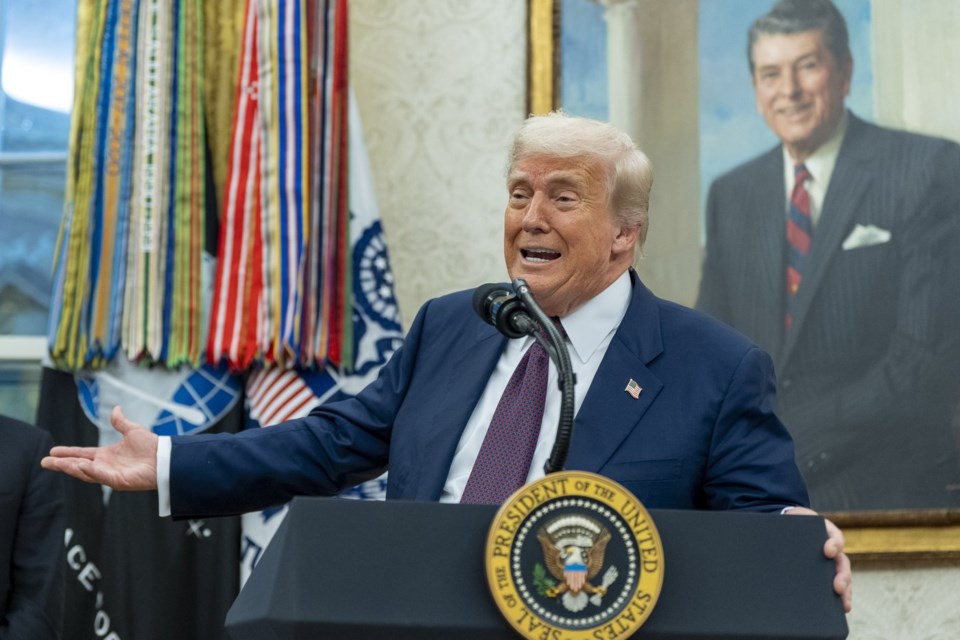NEW YORK (AP) — President Donald Trump on Thursday signed an executive order mandating a probe into whether banks have discriminated against conservatives and certain industries like gun manufacturers and cryptocurrency companies, invoking the vast powers to go after entities that the Republican president alleges have discriminated against him and his allies.
The executive order deals with an issue known as “debanking,” which is when banks close accounts of individuals or declines to go into business with certain industries. Trump has accused JPMorgan and Bank of America of debanking him and his companies in the past, something both banks have denied.
Trump ordered federal bank regulators to make sure banks do not discriminate against individuals or companies for their political or religious beliefs. He also ordered bank regulators to probe when banks may have allegedly discriminated and refer the cases to the Department of Justice.
The move could open banks to potential civil or criminal investigations, fines or punishments.
When Trump and his party discuss debanking, they typically refer to banks closing the accounts of a person or company when they no longer want to do business with them. Banks usually say they close accounts or deny loans because the person or business is deemed too risky. The banking industry has long argued that it has a constitutional right to choose whom they go into business with, if it does not violate laws like the Equal Credit Opportunity Act.
Th act, which was part of several pieces of legislation signed during the Civil Rights Movement, bans banks from discrimination based on race, ethnicity, religion, sex and other protected statuses.
Another type of debanking is when government regulators tell banks to avoid doing business with industries or individuals. Democratic President Barack Obama’s Department of Justice told banks to avoid doing business with “high risk” industries, which included payday lenders and firearms manufacturers.
This type of government-directed debanking is also known as reputational risk, where the historic reputation of an industry prompts banks to be more careful about banking and lending. Historic examples include entities who did business in high-risk countries, did business largely in cash or were repeatedly flagged by bank regulators.
Conservatives have argued that reputational risk has become an umbrella term that allows banks to discriminate. The banking industry insists it does not actively debank and does not target specific industries or individuals. Banks have already been removing any mention of reputational risk from their policies and procedures, particularly since Trump returned to the White House.
“We don’t close accounts for political reasons, and we agree with President Trump that regulatory change is desperately needed,” said a spokeswoman for JPMorgan Chase.
The Obama administration's government-directed debanking has been a rallying cry for conservatives. It’s one reason why the cryptocurrency industry backed Trump in 2024. While the Biden administration did not explicitly force banks to debank the crypto industry, Democratic President Joe Biden’s bank regulators did express some public concern about it, a move that was read by banks as a reason to steer away from crypto. That phrasing by the Biden administration was often referred to as “Operation Choke Point 2.0” by Trump and his allies.
Republicans have introduced legislation to cut down on alleged acts of debanking as well. Sen. Tim Scott of South Carolina, chair of the Senate Banking Committee, has introduced legislation that would require bank regulators to no longer consider reputational risk as a factor in how they measure a bank’s health and risk profile.
Ken Sweet, The Associated Press



